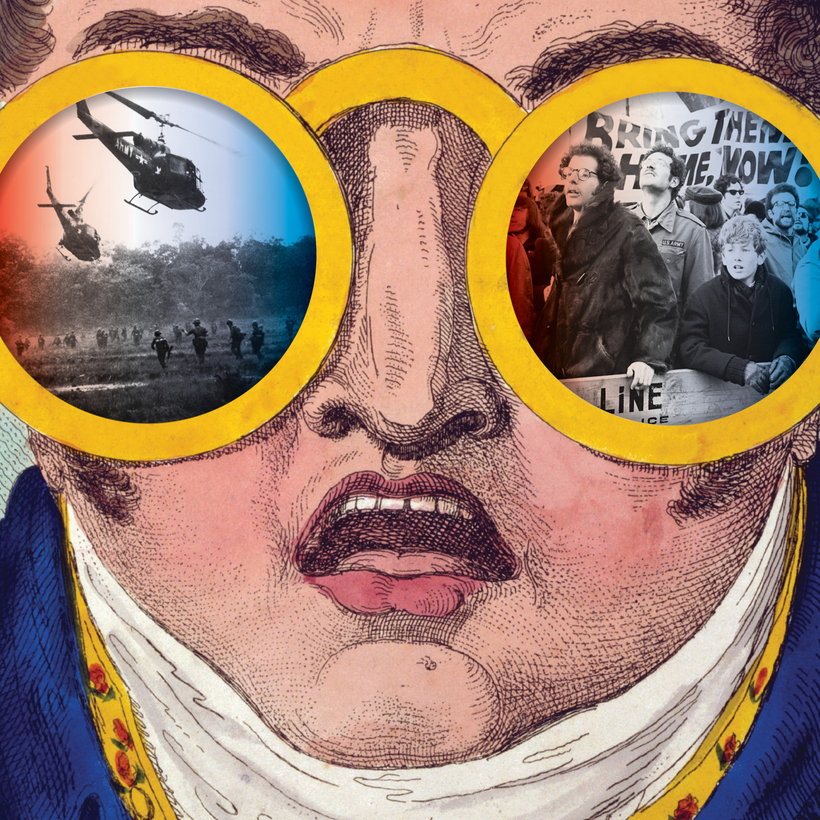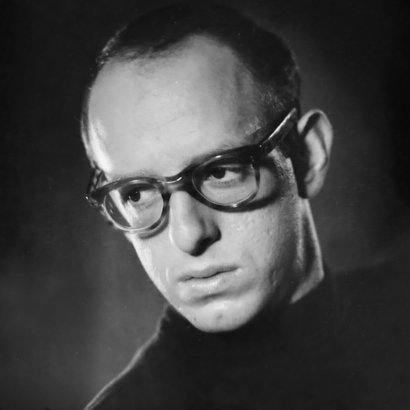In the 60s, theater people knew that the best acting in New York could be found at the Actors Studio, or at Stella Adler’s, or at the Living Theatre. In truth, the most intense performances were at the Armed Forces Examination and Entrance Station on Whitehall Street in Lower Manhattan, where thousands of draft-age men were summoned to appear for physical and psychological exams prior to being inducted into the U.S. Army.
You had to go. You had to show up. Not going into the army depended on your performance, and, unlike a role on Broadway or a table at Joe Allen, a bad performance could mean combat in Vietnam, a matter of life or death.
As a result, many reluctant young men arrived wearing dresses and makeup, on crutches or canes, or with eye patches, T-shirts in winter, and thick furs in summer, all in an attempt to leap the first hurdle: a meeting with a psychiatrist to make the case that they were too crazy to be a soldier. That was the Catch-22: to want to go to Vietnam you would have to be crazy, but the moment you tried not to go, you would be judged sane, as only a sane person would not want to go.
When I got my notice to appear, I was 21, recently married, and wanted to be an actor. I took classes with Bill Hickey and Alice Spivak at HB Studio on Bank Street, read Backstage for announcements of open casting calls, and stood in line holding a headshot and skimpy résumé of my college-theater credits. I needed a day job, one that gave me flexible time for auditions and classes.
Since I was armed with a college degree, I applied to be a substitute teacher in the New York City school system. I got a provisional license, subject to a background check and a future physical exam. The bureaucracy was slow, but while my application was being processed I could teach when I wanted and earn $25 a day.
Not going into the army depended on your performance, and a bad performance could mean combat in Vietnam.
My favorite school was a junior high on Avenue B where the principal loved actors. There were two chorus girls on the faculty: one taught English and was in Golden Boy with Sammy Davis Jr.; the other taught mathematics and was in My Fair Lady. The principal arranged their teaching schedules so they had no afternoon classes on Wednesdays, matinee day.
I lived across the street from the school in a tenement apartment—rent-controlled, rear ground floor, $42.50 a month, bathtub in the kitchen. It had a fine view of years of trash and garbage in the back. My landlady was the fabled slumlord Molly Cohen. Once, when my father came for a visit, and Molly arrived to collect the rent, they discovered that they had known each other in elementary school. My father said, “How can you rent such a horrible place like this?” Molly responded, “You’re his father. How do you let your son live in a horrible place like this?”
Nevertheless, my apartment, my nascent acting career, my teaching job, and likely my new wife would be lost if I were drafted and sent to Vietnam. It was before people chanted, “Hell no, we won’t go!” But that was the unspoken sentiment as we lined up on Whitehall Street by the hundreds, determined not to go.
After a cursory physical exam, there was the intelligence test. As the sergeant handed out the papers, he warned us, “I know some of you will be tempted to put in the wrong answers in the hope of failing the exam and being rejected. I gotta tell you it doesn’t work. Nobody fails the test, but the lower your score, the better chance you have of being in a combat unit in Vietnam. Score high, you might be a typist in Fort Lee, New Jersey.”
After the test, we were handed the health questionnaire. I checked every box I could, including homosexuality, tuberculosis, heart disease, and neuritis, and under allergies I listed tomatoes, dairy, nuts, cats, and remembered that once, after a family dinner in a French restaurant in Manhattan, my mother blamed my asthma attack on escargots. Unfortunately, French restaurants in New York closed Sunday night and I had to do with canned snails, and they had no effect. Why I imagined an allergy to escargots would get me out of the military is beyond me. Maybe the French Army.
The uniformed clerk looked at my health questionnaire, made a note, handed it back: “Psychiatrist. Left and second door on the right.”
I was halfway home.
I got in line behind a guy in fatigues, combat boots, a blond wig, bright-red lipstick, and a World War II cap who insisted I call him “General MacArthur.” He was in my scene-study class at HB Studio.
When it was my turn, I took a seat in front of the psychiatrist, a tired-looking man at a metal desk. There was a burly soldier in another chair in case any of the recruits decided to demonstrate violent tendencies The psychiatrist scanned my form.
“You’re a homosexual?”
“Yes, sir.”
“Married.”
“Yes, sir.”
“You have tuberculosis, cancer, venereal diseases, curvature of the spine, deafness, and neuritis.”
“Correct.”
It occurred to me that despite my answers I was behaving in a rational manner. Should I mention escargots?
“What kind of cancer?”
“Brain,” I said.
“And I see you have neuritis.”
“Yes.”
“Can you tell me what neuritis is?”
I remembered the Anacin commercial: “For pain of headache, neuritis and neuralgia.”
“It’s like a headache.”
The psychiatrist scribbled a note on a piece of paper and put it in an envelope.
“Nice talking to you. Give this to the clerk next door.”
In the hallway I noticed the envelope was hastily sealed. I opened it and read, “Neurotic, but not enough. Take him.”
It occurred to me that despite my answers I was behaving in a rational manner. Should I mention escargots?
A week later, President Kennedy declared married men would be given an automatic draft deferment. I was through with the army, but I wasn’t through with physicals. My next one was in Brooklyn at the board of education headquarters. I needed to pass it to continue working as a substitute teacher. The board-of-education doctor looked at my army health questionnaire.
“I do not think you are fit to be a teacher in the New York school system.”
“Why?”
“Because you have asthma, tuberculosis, venereal diseases, cancer, curvature of the spine, neuritis, deafness, you are a homosexual, and are allergic to escargots.”
“I am not.”
“But it says here.”
“That’s for getting out of the army.”
He stamped my form.
“I see a lot of that these days.”
Michael Elias is an award-winning writer and director who has written for film, television, and theater. His latest novel is You Can Go Home Now


